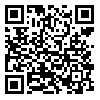مجله رویش روانشناسی از دادن گواهیهای کاغذی معذور است. لطفا تقاضا نکنید. همه گواهی ها در صفحه شخصی کاربران موجود است.
year 14, Issue 8 (atuomn 2025 2025)
Rooyesh 2025, 14(8): 181-190 |
Back to browse issues page
Download citation:
BibTeX | RIS | EndNote | Medlars | ProCite | Reference Manager | RefWorks
Send citation to:



BibTeX | RIS | EndNote | Medlars | ProCite | Reference Manager | RefWorks
Send citation to:
Dabagh Kashani L, Mirzaei S H, Mafakheri A. (2025). The Effectiveness of Schema Therapy on Academic Deviant Behaviors and Impulsivity in Lower Secondary School Students. Rooyesh. 14(8), 181-190.
URL: http://frooyesh.ir/article-1-6569-en.html
URL: http://frooyesh.ir/article-1-6569-en.html
1- PhD Student, Dep of Psychology, Bojnourd Branch, Islamic Azad University, Bojnourd, Iran.
2- Assistant Professor, Department of Psychology, Bojnourd Branch, Islamic Azad University, Bojnourd, Iran. ,dshomi45@gmail.com
3- Assistant Professor, Department of Psychology, Payame Noor University, Tehran, Iran.
2- Assistant Professor, Department of Psychology, Bojnourd Branch, Islamic Azad University, Bojnourd, Iran. ,
3- Assistant Professor, Department of Psychology, Payame Noor University, Tehran, Iran.
Abstract: (465 Views)
The present study aimed to determine the effectiveness of schema therapy on academic deviant behaviors and impulsivity in male middle school students. This was a quasi-experimental study with a pre-test–post-test control group design and a two-month follow-up period. The statistical population included male middle school students in District 5 of Tehran in the year 1403 (2024–2025). From this population, 20 students were selected through purposive sampling and randomly assigned to experimental and control groups (10 students in each). Participants completed the Academic Deviant Behavior Questionnaire (Clark et al., BIS-II, 2015) and the Barratt Impulsiveness Scale (Patton et al., INE-R, 1995). The experimental group received schema therapy intervention in eight 90-minute group sessions, held once per week. Data were analyzed using repeated measures ANOVA. The results indicated significant differences between the two groups in academic deviant behaviors and impulsivity across the pre-test, post-test, and follow-up stages (p < 0.05), showing that schema therapy significantly reduced scores on both variables. Furthermore, the Bonferroni test results revealed that this reduction was maintained not only immediately after the intervention but also during the follow-up period (p < 0.05). Accordingly, it can be concluded that schema therapy can be used to reduce academic deviant behaviors and impulsivity among male middle school students.
Type of Article: Research |
Subject:
Educational Psychology
Received: 2025/09/11 | Accepted: 2025/09/29 | ePublished: 2025/11/1
Received: 2025/09/11 | Accepted: 2025/09/29 | ePublished: 2025/11/1
Send email to the article author
| Rights and permissions | |
 |
This work is licensed under a Creative Commons Attribution-NonCommercial 4.0 International License. |





